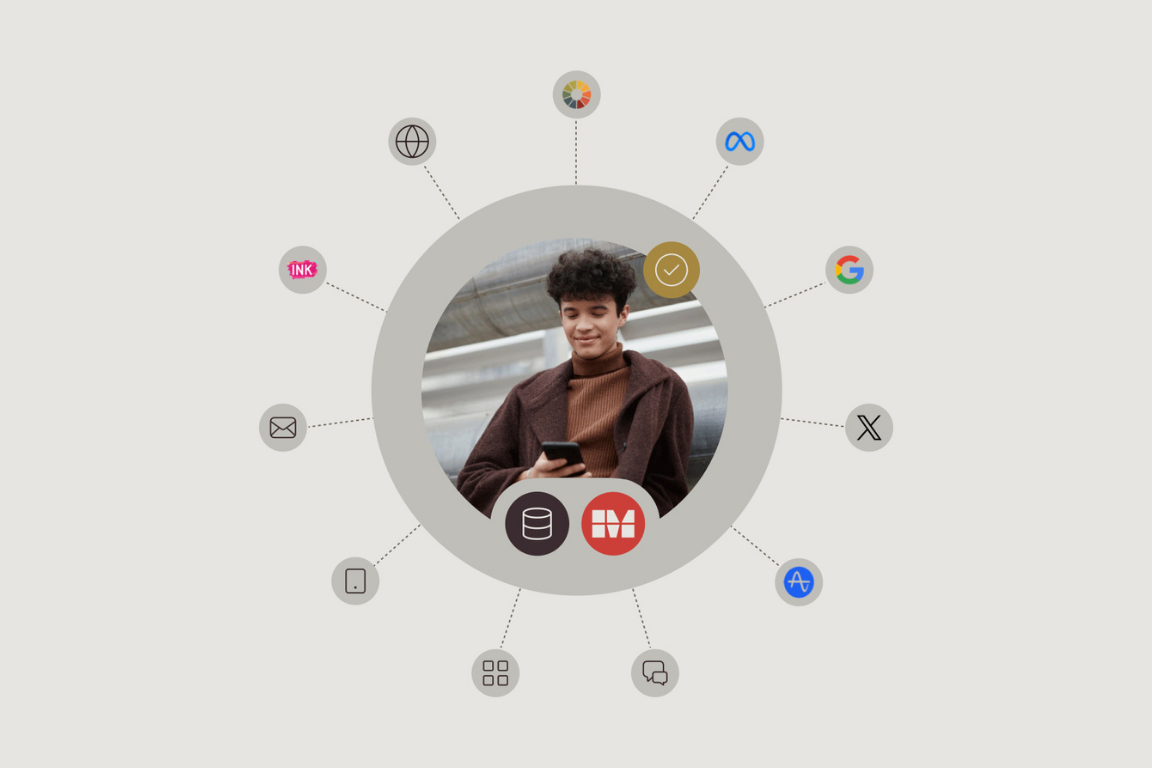Blog
4 benefits of connecting your martech directly to your data
Published on February 19, 2024

Will Devlin

B2C enterprise marketers know all too well the importance of maintaining a clean and organized customer database. Yet, the challenge lies in being able to efficiently consolidate and access vast amounts of data, a process that can be both cumbersome and costly.
Once your brand invests in the tools to address these challenges – such as partnering with a modern data warehouse like Snowflake, BigQuery, Redshift, or building an internal solution – you’ll then need to think about how your ESP (email service provider) will fit into this data equation. Will your ESP be ready to seamlessly leverage this organized data? Or will it become yet another obstacle, making it difficult to use the full capabilities of your tools?
If you’re using a standard cloud-based marketing platform, your customer data still needs to find a way outside of your firewall and into the ESP/CEP/CDP so you can use it for marketing campaigns and personalization. The good news is a hybrid solution can give you the sending power of the cloud while sitting directly on top of your data.
Let’s unpack the biggest benefits of connecting your martech directly to your data:
Improved 1:1 personalization
Having direct, real-time access to customer data enhances your ability to personalize cross-channel messaging campaigns. Without another third-party cloud standing between you and your data, you can seamlessly incorporate new attributes and data points to execute creative campaign ideas without delays or hurdles.
If the data you collect is stored in your data warehouse, it’s readily available for you to use, meaning you don’t need to face awkward obstacles like requesting new data fields or dealing with response delays. Sometimes, even just a 15-minute delay can be detrimental to a campaign.
Without another third-party cloud standing between you and your data, you can seamlessly incorporate new attributes and data points to execute creative campaign ideas without delays or hurdles.
Connecting your martech directly to your central database empowers your marketing team to consistently deliver timely, relevant, and compelling content to your customers and prospects across every channel. This approach ensures that your brand’s investment in organizing extensive datasets will translate into enhanced marketing capabilities.
Reduction in IT involvement
The traditional process of coordinating with the IT team for list creation and campaign-related tasks can be time-consuming and, let’s face it, often frustrating for the marketing team. But IT involvement and reliance decrease substantially when your cross-channel engagement platform connects directly to your central database.
IT involvement and reliance decrease substantially when your cross-channel engagement platform connects directly to your central database.
For instance, Expedia reported a whopping 50% reduction in IT involvement in marketing campaigns after adopting a hybrid solution. This shift means the marketing team can handle tasks independently, freeing up IT resources for more critical priorities. This results in big time and cost savings across both departments.
Lower costs
When time means money, process inefficiencies can become extremely costly. Connecting your cross-channel platform directly to your database helps eliminate the inefficiencies associated with data lags, using additional IT resources, and spending time on operational tasks instead of strategic initiatives.
For example, a week spent waiting for your ESP to respond to an email is a week lost for campaign execution, and it could mean lost opportunities. Similarly, waiting a day for IT to deliver an audience list could mean competitors get there before you with perfect-time, perfect-place messaging.
These efficiencies reduce costs, not only for marketing but also for IT.
Real-time access to data removes these challenges, reducing waiting times and allowing marketing teams to execute campaigns as fast as they want. These efficiencies reduce costs, not only for marketing but also for IT. A hybrid solution also means you don’t need to duplicate data storage. With a traditional tool, you need to store data in your database and then have that same data in the martech’s cloud for building and executing campaigns. Why pay for both when you only need one?
Secure customer data
In an era where data breaches pose a significant threat to consumer-focused brands, the security of customer data is non-negotiable. Your data is never safer than when it’s housed behind your firewall, providing protection against the data breaches commonly associated with moving data to various clouds.
No matter how secure your martech tool may seem, trusting it with your customer data is a leap of faith.
A direct connection to your consolidated database, single sign-on options, and KMS (Key Management Service) encryption technology, will give you the highest level of security. This not only meets stringent security requirements but also instills trust in customers, safeguarding sensitive information from potential breaches.
Embracing a direct integration with your data
As brands strive to break down silos and organize their data, partnering with a technology provider that can connect directly to your data becomes a pivotal step toward achieving a personalized cross-channel marketing strategy.
This integration not only enhances personalization capabilities but also streamlines processes, reduces costs, and fortifies the security of sensitive customer information. Embracing the power of direct ESP integration unlocks the full potential of your organized data, propelling your marketing efforts to new heights. 🚀

Will Devlin VP, Marketing
A 20-year email marketing veteran, Will has focused on marketing strategy and execution for MessageGears since 2014. He has extensive experience on both the retail customer and service side of email marketing, and he’s interested in helping businesses better understand how they can make the most of the work they put into their email campaigns.